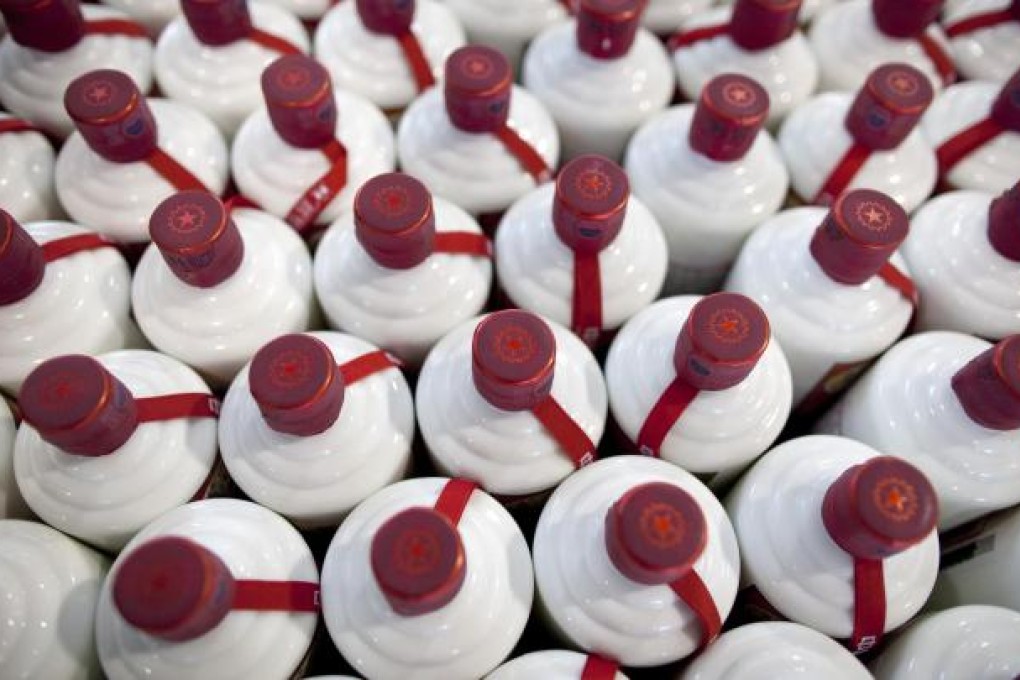Baijiu sales hit by China's crackdown on extravagance
Baijiu, particularly the more expensive brands, was not in great demand this festive season as a result of the central government's crackdown on extravagance

Top-priced Baijiu, the fiery spirit traditionally drunk during Lunar New Year, was noticeably absent from gan bei gatherings this year in response to a government campaign against public spending and extravagance.
Gan bei, which translates from Putonghua as "dry the glass", refers to the drinking culture at mainland dinner tables, in particular during Lunar New Year, when Baijiu, or "white liquor", is the drink of choice used for toasts.
But Baijiu, particularly the more expensive brands, was not in great demand this festive season as a result of the central government's crackdown on extravagance ahead of the Lunar New Year, said Liu Yuan, the secretary-general of the China National Association for Liquor and Spirits Circulation. As a result, liquor retailers were heavily discounting their stock.
Sales of these high-end Baijiu brands were not as good as last year even though prices have halved
At a wholesale alcohol store, a 500 millilitre bottle of the upmarket Feitian Moutai Baijiu, produced by Kweichow Moutai with an alcohol content of 53 per cent, was priced at 1,560 yuan (HK$1,922) this New Year, down from more than 2,300 yuan over the same period last year. A 500ml bottle with an alcohol content of 52 per cent sold under the Wuliangye brand was priced at 1,050 yuan, compared with 1,330 yuan a bottle last year.
Boxes of unsold Moutai and Wuliangye were stacked up in the stores. "We are now clearing the stocks, but sales of these high-end Baijiu brands were not as good as last year even though prices have halved," said a sales representative.
"Feitian Moutai's Baijiu price was reduced a lot, but it's still too expensive to attract customers," said a sale representative at BHG Market Place, a boutique supermarket in Beijing. "I can offer another 500 yuan discount if you buy six bottles."
The representative offered a 100 yuan discount on the purchase price of six bottles of Wuliangye, which was priced at 1,299 yuan per bottle, and the same discount for National Cellar 1573, produced by Baijiu-maker Luzhou Laojiao, with a price tag of 1,398 yuan per bottle.
